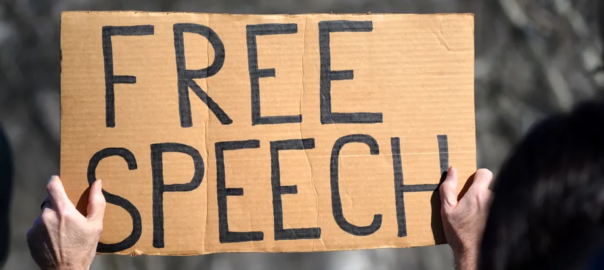By Daniel A. Horwitz (Republished from the Tennessee Free Speech Blog):
In 2019, Tennessee’s free speech law underwent a sea change. The Tennessee Public Participation Act—Tennessee’s first-ever meaningful anti-SLAPP law—took effect, ushering in a host of critical protections for people sued for defamation (libel or slander), false light invasion of privacy, business disparagement, or other speech-based torts.
Heading into its third year of existence, it is clear at this point that the Tennessee Public Participation Act is working. If 2021 is a sign of things to come, Tennessee’s free speech law is also headed in the right direction.
Building on a series of important wins in 2020, the results that the TPPA produced in 2021 cannot be overstated. To list just a few of them:
In June of 2021, the Tennessee Court of Appeals affirmed an anti-SLAPP judgment—the first ever anti-SLAPP judgment issued in Tennessee—in favor of a Wilson County woman who posted a negative Yelp! review. The end result was that the thin-skinned doctor who baselessly sued her was ordered to pay a cumulative $75,000.00 cost, fee, and sanctions award for his SLAPP-suit across a pair of cases filed in Wilson County Circuit and General Sessions Court.
In March of 2021—and then again in July 2021—Circuit Courts in separate counties affirmed the constitutionality of the Tennessee Public Participation Act over a Plaintiff’s constitutional challenge.
In December of 2021, the Tennessee Court of Appeals signaled that it would treat the TPPA’s statutory discovery stay seriously, entering an immediate order staying discovery pending appeal upon a defendant’s application for extraordinary appeal on the matter.
Also in December of 2021, SmileDirectClub’s multi-billion dollar SLAPP-suit against NBC Universal was dismissed under the TPPA.
Also in December of 2021, the Circuit Court of Overton County granted several public school parents’ TPPA petitions to dismiss a SLAPP-suit filed by a public school teacher who had been lawfully accused of sexual predation and harassment against students.
Also in December of 2021, the Tennessee Court of Appeals affirmed both an anti-SLAPP judgment and a $39,000 fee and sanctions award issued against a congressional candidate who sued a trio of activists for criticizing him on Facebook. The Court of Appeals additionally issued appellate sanctions against the candidate for filing a frivolous appeal.
There were some setbacks for the TPPA, though. Most prominently, the U.S. District Court for the Middle District of Tennessee held for the first time that the Tennessee Public Participation Act does not apply in federal court—one of many reasons why a federal anti-SLAPP law remains essential. The media’s nasty habit of covering SLAPP-suits only at their inception and hyping the liability that a defendant faces—then failing to follow up once a SLAPP-suit predictably fails—has not improved, either, even when media defendants themselves are the targets.
All considered, however, 2021 was a tremendous year for Tennessee’s nascent anti-SLAPP law. Here’s to more wins—and more protected speech—in 2022.
Daniel Horwitz is a free speech lawyer who represents clients across Tennessee.
Like ScotBlog? Join our email list or contact us here, or follow along on Twitter @Scot_Blog and facebook at https://www.facebook.com/scotblog.org
